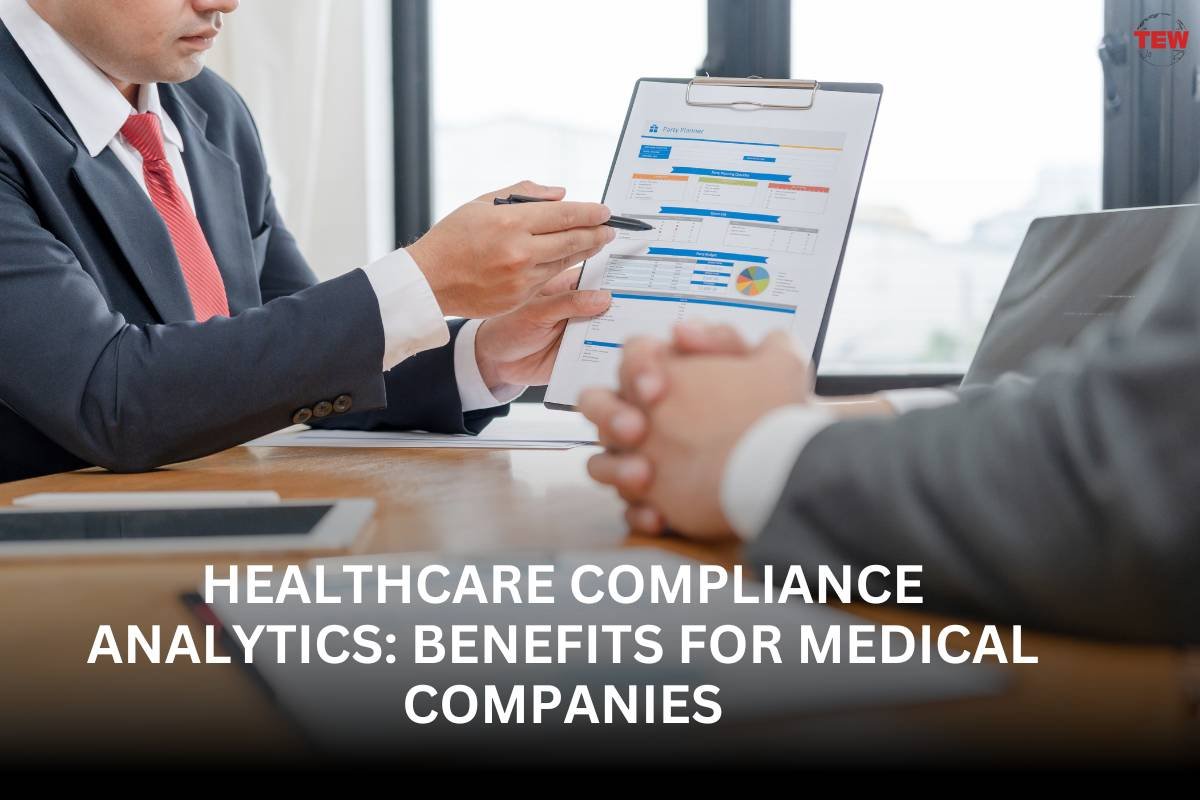Learn how compliance analytics benefits healthcare providers and ways to strengthen it.
According to Dimension Market Research (DMR), the global market for software developed to help organizations meet healthcare requirements is projected to reach $3.7 billion by the end of 2024. Its value is expected to reach US$10.3 billion by 2033 (CAGR – 12.0%).
Why is healthcare compliance analytics needed?
Healthcare compliance analytics helps medical providers, insurance agencies, and other healthcare-related organizations comply with healthcare regulatory standards, requirements, and guidelines. Healthcare organizations need such solutions to minimize the risks of non-compliance with standards and requirements, including private patient data protection and the prevention of controlled substance diversion.
Protect Private Patients’ Records

Healthcare private patient records are data that contain all medical and personal information to identify the patient. It includes all patient insurance transactions, diagnostic and treatment data, medical history, etc.
To protect patient data, healthcare organizations follow the requirements of the Health Insurance Portability and Accountability Act (HIPAA). The scope of HIPAA was expanded in 2009 with the passage of the Health Information Technology for Economic and Clinical Health Act (HITECH). Via HITECH, HIPAA compliance is strengthened. Regulators tighten compliance requirements and standards and increase penalties for non-compliance. The fines and legal costs of non-compliance and the risk of reputational damage can force healthcare providers to consider proactive compliance strategies.
As the Chief Innovation Officer of the software development company Belitsoft with 20 years of HealthTech expertise, I know that business intelligence tools in healthcare enable the protection of sensitive patient information. Predictive analytics allows healthcare providers to identify and solve compliance problems before they occur. To do this, it analyzes historical data and identifies patterns that could lead to compliance risks in the future. In addition, healthcare compliance analytics can identify deviations from established requirements and compliance standards in real time and propose solutions to these problems before the consequences of deviations lead to penalties.
In 2023, the Department of Health and Human Services (HHS) Office for Civil Rights (OCR) became aware of 725 serious hackers in the healthcare sector, writes The HIPAA Journal. It was a kind of record compared to 2022 when 720 healthcare security breaches were recorded. 69.8% of healthcare data breaches were related to network servers, and 18.3% were due to email hacking. The consequences of cyber attacks can be severe for the person whose data was stolen. Hackers can use personal information to manufacture fake insurance claims, buy expensive goods in their name, or simply blackmail the victim of a cyber attack and extort money from them.
To prevent cyberattacks, a healthcare provider can use predictive analytics coupled with healthcare AI and machine learning solutions. These tools can assess the risks of online transactions in real time. In addition, they can simulate hacker attack scenarios to offer the provider effective measures and response plans in the event of a real cyber attack.
Prevent Controlled Substances Diversion
The problem of controlled substances leakage in healthcare institutions is acute and relevant. When a medical staffer steals drugs for personal use, patients who need therapy or pain relief with these drugs cannot receive them. Also, when healthcare personnel try to cover up the theft of, for example, injectable substances, they spread bacterial or viral infections to patients. Infection can occur when they take injectable substances for personal use and return the contaminated equipment without sterilization.
The American Journal of Health-System Pharmacy calls predictive analytics and machine learning effective, accurate, and fast solutions for detecting drug diversion. The research where it was detected via advanced analytics and machine learning, states that the problem was identified with an accuracy of 96.3%.
With faster retrieval rates, a healthcare provider can intervene immediately to prevent drug diversions and the potential risks of further stealings. Also, to prevent the theft of medications, the healthcare compliance analytics software offers providers real-time monitoring of medication movement transactions. And also – advanced reports to identify and analyze trends in drug diversion in a specific medical institution.
How to strengthen healthcare compliance analytics?
View a list of the most popular healthcare data security actions that will help the healthcare compliance analytics software be more effective.
Clean Healthcare Data

Analytics data may come from disparate sources and in different formats. Cleaned data ensures that data sets are consistent, accurate, correct, relevant, and uncorrupted. The provider should conduct the data cleaning process as early as possible after the first data collection. It will reduce conflicting cleansing activities and the likelihood that the provider will need to clear the same data later.
Store Healthcare Data Safely
When a healthcare provider chooses data locally storage, it is easier to control access. However, an on-site server network can be expensive to scale and difficult to support.
Cloud storage is a more affordable option – both from a financial and service point of view. The HIPAA Journal warns that not all cloud storage partners are trustworthy, so the healthcare provider must be careful when choosing a service provider.
Apply the Principle of Least Privilege
One can strengthen the security measures provided by healthcare compliance analytics and apply the principle of least privilege to access data. The essence of this principle is that a healthcare provider gives its employees only the necessary minimum data for work. For example, employees who control the payment do not need to know whether there are hereditary diseases in the patient’s family. This information will only be useful to the attending physician.
Apply Data De-Identification

To reduce the restrictions imposed by HIPAA, a healthcare provider may deidentify and anonymize PHI. PHI de-identification makes it impossible to determine the patient’s identity and re-identify the person. Today, there are two de-identification methods: HIPAA Expert Determination and HIPAA Safe Harbor. HHS’ Office for Civil Rights states that these methods do not eliminate all risks of re-identification. However, they reduce this risk to an acceptably low level, writes The HIPAA Journal.
Enter into Business Associate Agreements
The US Department of Health and Human Services emphasizes that HIPAA rules require organizations and business associates to enter into specific agreements with their business associates. These agreements ensure that business associates undertake to safeguard protected health information (PHI) appropriately. These agreements also regulate the extent to which one business associate may use and disclose PHI based on the activities that the associate performs or on the relationship between the business associates.
In Conclusion
One of the primary tasks of a healthcare provider is to ensure compliance with the requirements of healthcare regulatory authorities. The healthcare compliance analytics implementation will help minimize reputational risks, predict potential non-compliance problems, and avoid fines and legal costs. Via analytics, the provider can control the level of protection of the patient’s data and prevent drug diversion.
About the Author

Dmitry Baraishuk is a Partner and Chief Innovation Officer (CINO) at the software development company Belitsoft (a Noventiq company) with 20 years of expertise in digital healthcare, custom e-learning software development, Artificial Intelligence (AI), and Business Intelligence (BI) implementation.


















